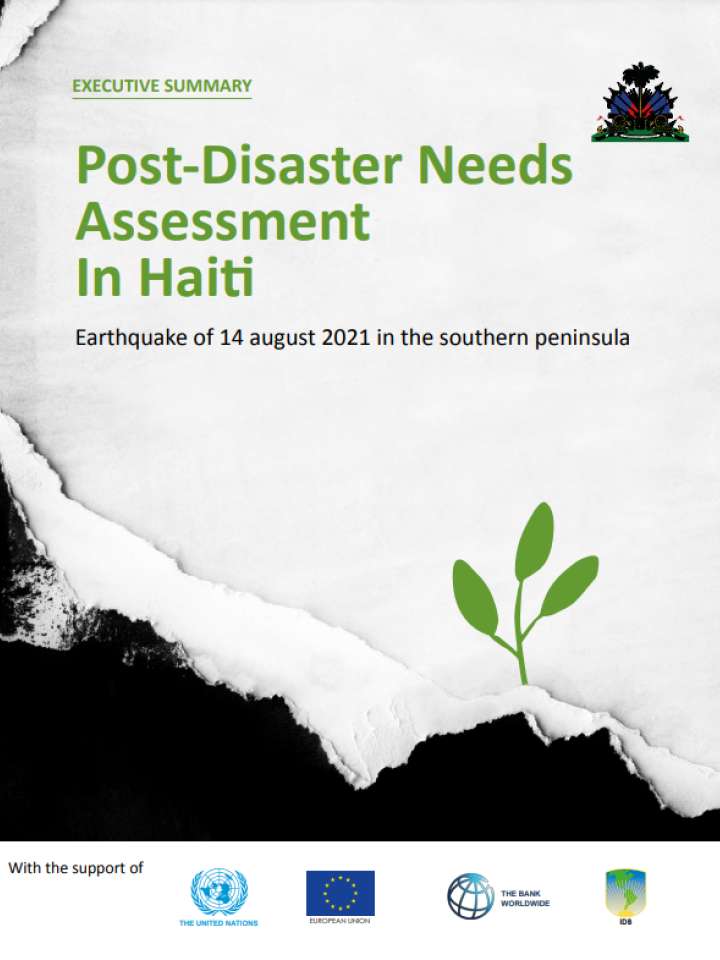Post-Disaster Needs Assessment in Haiti Earthquake of 14 august 2021 in the southern peninsula
On August 14, 2021 at 8:29 a.m., an earthquake of 7.2 on the Richter scale struck the Southern Peninsula of Haiti comprising the departments of Sud, Grand ’Anse and Nippes. The national authorities declared the same day a state of emergency and activated the national natural disaster risk management system to coordinate, through the General Directorate of Civil Protection, rescue operations aimed at saving lives and respond to the immediate needs of affected populations in collaboration with local and international actors present on site, and countries friendly to Haiti. The national authorities have also mobilized the tripartite partnership made up of the World Bank, the United Nations and the European Union - joined by the Inter-American Development Bank - to support them in the Post-Disaster Needs Assessment, better known under its acronym for PDNA (Post-Disaster Needs Assessment).
The methodology consists in considering the economic and social context before the earthquake in the three departments of the Southern Peninsula in order to allow the analysis of the disparities observed before and after the earthquake. Then, the assessment focuses on the quantified identification of the effects of the disaster in terms of damage, losses and additional costs generated by the earthquake. Based on the understanding of the effects and impacts, recovery needs are identified for 9 sectors grouped into four broad categories: (i) productive sectors (agriculture, commerce and industry, tourism), (ii) social sectors ( housing, health and education), (iii) the infrastructure sectors (transport, water and sanitation, and energy), and (iv) two cross-cutting issues (disaster risk reduction, and environment).
